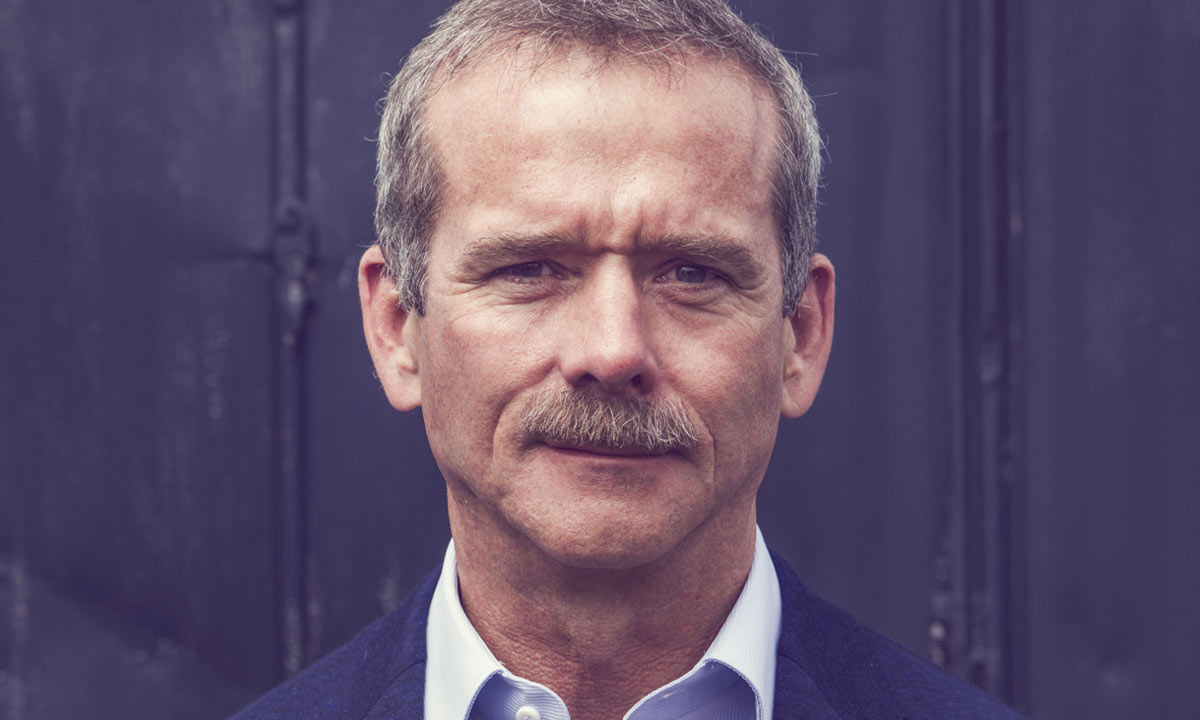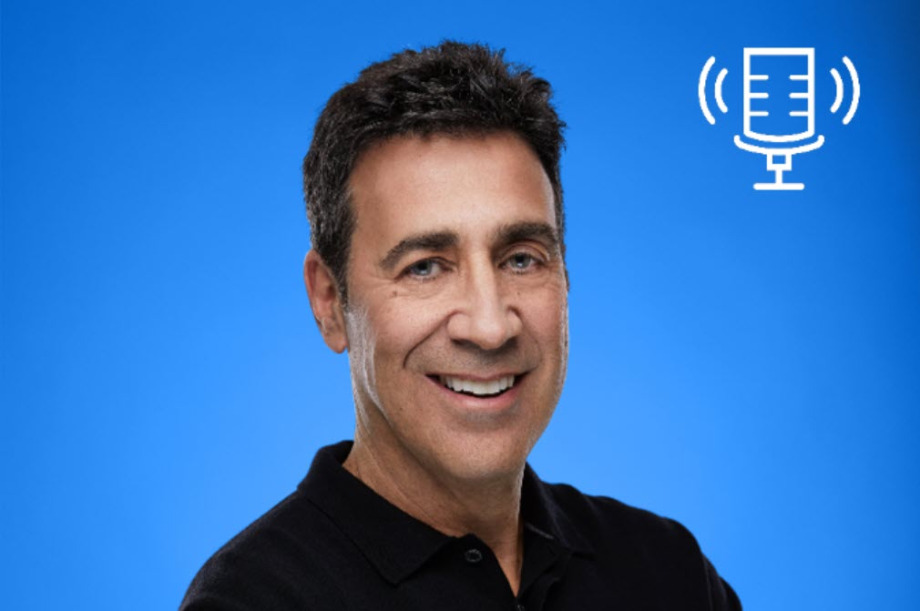Every week, Tony Chapman chats with ordinary people doing extraordinary things. In his inspiring Chatter That Matters podcast series, Chapman uncovers tales of astonishing grit and resilience, stories of strength and impact, and valuable lessons that can help us all see the possibilities of life — even during challenging times.
Chris Hadfield’s imagination was first sparked by comic books filled with people going to the moon in little pointy ships. His mind expanded by reading books by science fiction greats such as Arthur C. Clarke, Ray Bradbury, Isaac Asmiov and Arthur Conan Doyle. Star Trek and 2001: A Space Odyssey added imagery, further bringing space to life for the young dreamer.
“All of that gave me permission to imagine a whole other life for myself,” he tells Chapman. Then, when Neil Armstrong, Buzz Aldrin and Michael Collins landed on the moon, he was able to bridge fantasy and reality. “This is a thing that people were doing,” he tells Chapman. “This is no longer a fantasy — this is a career choice.”
As Hadfield explains: “I realized I wasn’t going to be an astronaut accidentally.” So in his head, he began to break down what he needed to do in order to become one.
Having a clear goal helped to shape choices through his youth, including the courses he took in school and the books he read on weekends. He obtained his scuba license, because astronauts go diving to mimic spacewalks. He joined the air cadets to get his pilot’s license. Anything to take him one step closer.
This commitment to preparation continued to serve Hadfield as he progressed through his life and career as an astronaut. As he describes his first flight into space, he reveals his nerves standing at the threshold of his dream becoming a reality.
It's the culmination of everything to that point of your life because you're about to do something you've been dreaming about since you were a little kid. You're doing something you have been working towards for decades.
But he was able to calm himself, because of all the preparation he had done to get to that point. “As I was crawling to the ship, I felt very calm because I’d practiced it and I knew what was happening, and I knew the odds and I knew my role. There’s great comfort in that. Being completely prepared for something tends to decrease the worry and stress of it all.”
“It only matters what you do next”
Hadfield grew up on a farm, in a family that encouraged curiosity and a quest for answers. He was an engineer and had trained as a pilot. Through his life and work experience, Hadfield had learned that equipment breaks down, things go wrong, software trips up. So when he was struck blind from anti-fog chemicals in his visor while on a spacewalk, he didn’t panic.
“Something I’ve learned throughout my life is that it doesn’t really matter what you did in the past or what you set out to do. All that really matters is what you do next. Are you ready to do what’s inevitably going to happen?”
Hadfield had visualized things going wrong. He was able to do a realistic assessment of the danger he was in, rather than giving in to fear. “So I can’t see. So what? What does that actually mean?” he recounts to Chapman. “I worked my way through the problem, and we ended up finishing the whole spacewalk.”
It’s an attitude anyone can apply to their lives
“It’s your life,” Hadfield says, encouraging listeners to prepare for threats and inevitabilities. “If a fire alarm goes off in our house, if I blow a tire on my car or if I see someone having a seizure, what will I do? A lot of people sort of cross their fingers and hope and whistle past the graveyard. But the trouble with that, is things go wrong and things go badly. And if all you’ve done to prepare for what’s going to happen is hope, then you’re going to be overwhelmed and incapable of dealing with the situation. So why not use some of the beautiful, quiet time in our lives and get ready for the inevitability of the things that are going to happen?”
“This is a moment of opportunity”
The level of accountability Hadfield proposes is one he feels can serve people well through the ongoing challenges of the pandemic. Rather than feeling trapped, it’s important to accept the situation. This isn’t a timeout from life or an exception to life. This is just life. “Make the mental leap to accept that, and own it as part of your life. And given these confines, think ‘what can I get done today? What can I learn today?’ It’s a tremendous moment of opportunity.”
Life comes with risks and limitations, but also a lot of possibilities. Hadfield encourages others to make the most of their time, prepare for and anticipate the challenges that will come your way, and plan for the life your want to live.
“What are you individually inspired to do in your life?” he asks. “What is exciting to you? If your life goes perfectly, what will you have a chance to do during your life? And then, how can you get yourself from here to there?”
As Hadfield is living proof that even the sky isn’t the limit, his words may inspire you to pursue your best life.
To Listen to this show go to chatterthatmatters.ca, or download Chatter that Matters wherever you get your podcasts, or on these stations:
- Newstalk 1010, Toronto
- CFRA 580 Ottawa
- CJAD 800 Montreal
- CJBK 1290 London
- Newstalk 610 St. Catharine’s
- CKLW 800 Windsor
- CKFR 1150 Kelowna
- Fridays at 1 p.m.
- CFAX 1070 AM Victoria
- Fridays at 8 p.m.
- BNN Bloomberg, CFTE 1410 Vancouver
To listen to Tony Chapman’s CHATTER THAT MATTERS Podcast, download Chatter that Matters on I HEART Radio, wherever you get your podcasts, or at: https://chatterthatmatters.ca
This article is intended as general information only and is not to be relied upon as constituting legal, financial or other professional advice. A professional advisor should be consulted regarding your specific situation. Information presented is believed to be factual and up-to-date but we do not guarantee its accuracy and it should not be regarded as a complete analysis of the subjects discussed. All expressions of opinion reflect the judgment of the authors as of the date of publication and are subject to change. No endorsement of any third parties or their advice, opinions, information, products or services is expressly given or implied by Royal Bank of Canada or any of its affiliates.



















